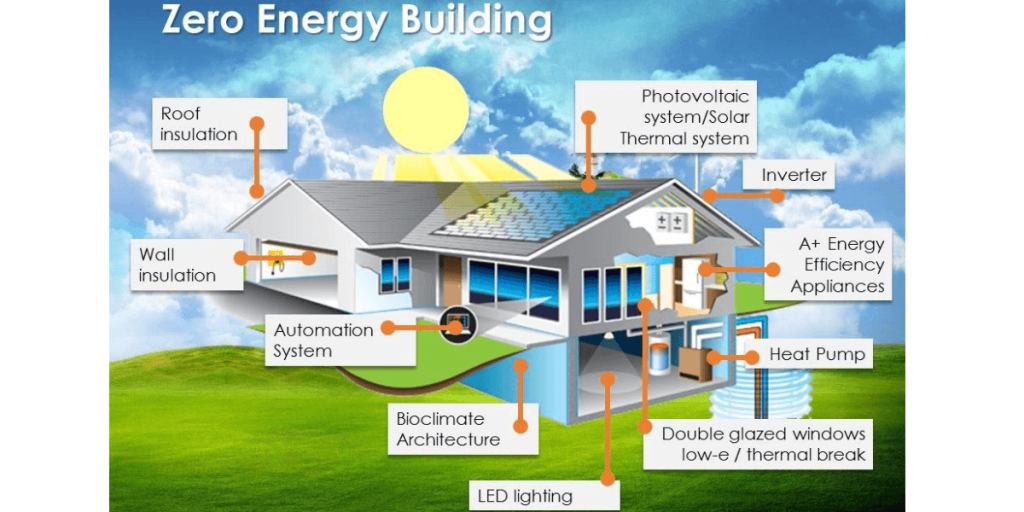
Introduction
In today’s world, the quest for eco-friendliness and financial prudence is driving many individuals and households to explore alternative energy sources. One such solution that stands out is the adoption of solar systems. Solar energy, harnessed from the sun, offers a dual advantage: it reduces your carbon footprint while helping you make substantial monthly savings on electricity bills. In this informative guest post, we will delve into the numerous benefits of shifting to solar systems, emphasizing how they contribute to both sustainability and cost-effectiveness.
Understanding Solar System & Solutions
Before we dive into the advantages of solar systems, let’s first understand how they work:
Solar Panels: Solar panels are the core components of a solar system. These panels, often mounted on rooftops or ground-based structures, contain photovoltaic cells that convert sunlight into direct current (DC) electricity.
Inverters: The DC electricity generated by solar panels is then converted into alternating current (AC) electricity through inverters. This transformation is essential for powering your home’s electrical appliances.
Energy Production: Solar systems generate electricity when exposed to sunlight. This generated electricity can be used to power your home or even be sent back to the grid, earning you credits in some regions.
The Benefits of Shifting to Solar Systems
Now that we have a fundamental understanding of solar systems, let’s explore the benefits they offer:
1. Clean and Renewable Energy: Solar energy is an abundant and renewable energy source. It produces electricity without emitting harmful greenhouse gases, contributing to a cleaner environment.
2. Substantial Cost Savings: Shifting to solar systems can lead to significant monthly savings on electricity bills. By generating your electricity, you reduce your reliance on grid power, effectively lowering your energy costs.
3. Environmental Impact: Adopting solar solutions is a proactive step towards reducing your carbon footprint. By harnessing the power of the sun, you actively contribute to the global effort to combat climate change.
4. Energy Independence: Solar systems offer a level of energy independence. You become less vulnerable to fluctuations in energy prices and grid outages, ensuring a continuous power supply.
5. Government Incentives: Many governments offer incentives, such as tax credits, rebates, and net metering programs, to encourage the adoption of solar systems. These incentives make the initial investment more appealing.
6. Increased Property Value: Properties equipped with solar systems often have higher resale values, making them more attractive to potential buyers.
The Role of Energy Monitoring Systems in Homes
To further enhance the efficiency and benefits of solar systems, the integration of home energy monitoring systems is gaining popularity:
Real-Time Data: Home energy monitoring systems offer real-time data on energy consumption within your home. This information helps identify energy-intensive appliances and supports energy-efficient practices.
Cost Tracking: Some monitoring systems calculate the cost of energy consumption in real-time, enabling you to stay within budget and make informed financial decisions.
Energy Usage Patterns: Energy monitors provide insights into energy usage patterns, allowing you to identify trends and opportunities for optimization.
Maximizing Savings with Solar System
Now that we’ve established the advantages of both solar systems and home energy monitoring, let’s explore how they work together to maximize your monthly savings with Solar system management.
Maximized Energy Production: Solar monitoring ensures that each panel operates at peak efficiency, thereby maximizing energy production.
Proactive Maintenance: Identifying and addressing issues promptly minimizes downtime, ensuring your solar system maintains its efficiency.
Enhanced Cost Savings: When integrated with solar solutions, energy monitoring devices further reduce energy bills, amplifying the financial benefits of solar energy.
Conclusion: A Greener, Cost-Efficient Future
Shifting to solar systems is not just about saving on electricity bills; it’s a proactive step towards a sustainable and financially prudent future. By harnessing the sun’s abundant energy, you can reduce your carbon footprint, cut energy costs, and become an active contributor to a greener planet.
The addition of home energy monitoring systems enhances the efficiency of your solar system, providing you with valuable insights into energy consumption and opportunities for savings.
As the world continues its transition to renewable energy sources, solar systems and home energy monitoring devices stand as symbols of progress and sustainability. By investing in these technologies, you’re not only lowering your energy bills but also becoming a steward of a brighter, more sustainable future for yourself and generations to come.